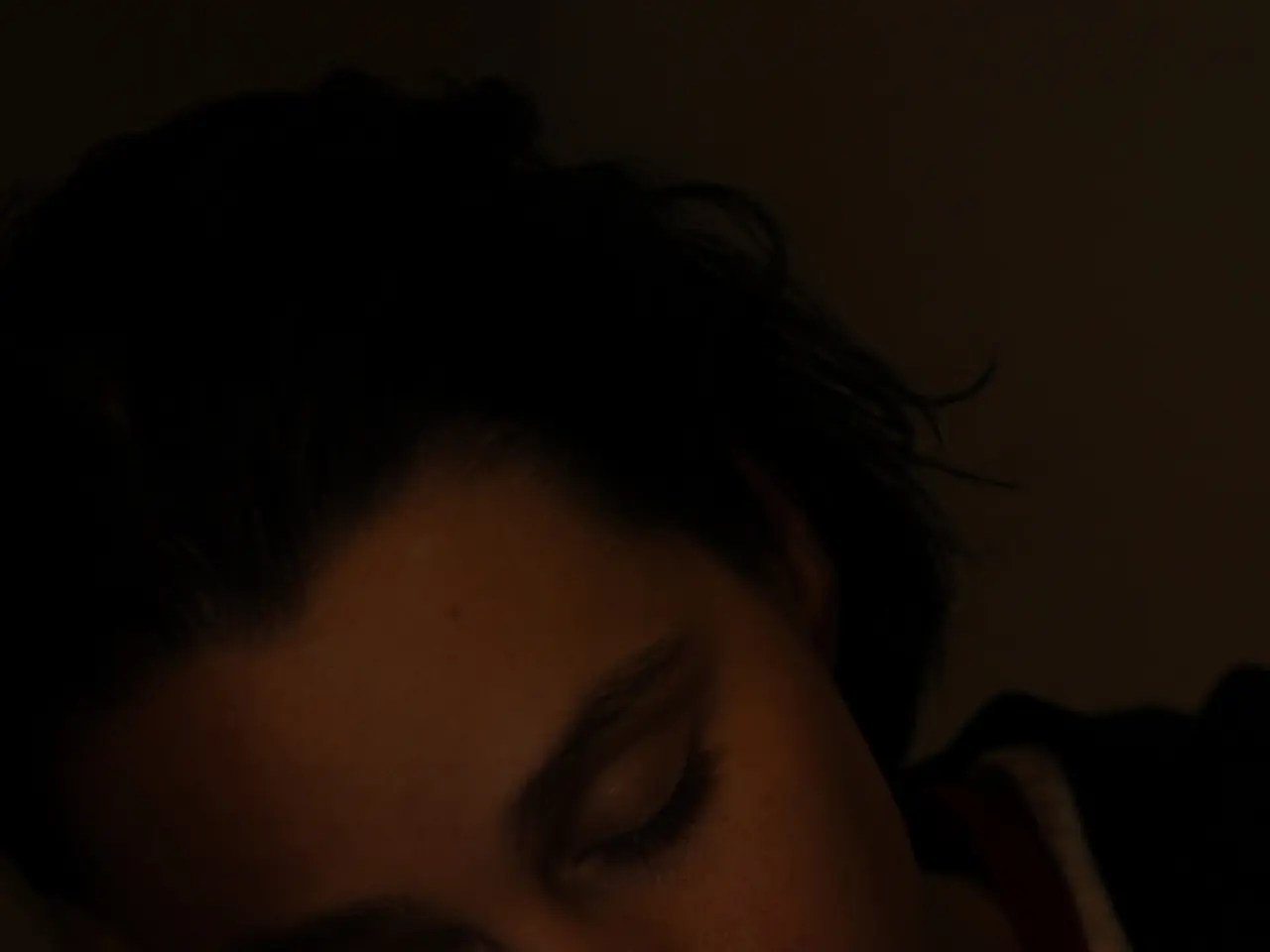Night Vision Troubles: Potential Causes Unveiled
Night blindness, also known as nyctalopia, is a common condition that affects a person's ability to see in low-light or darkness. It is not a disease in itself but a symptom of underlying causes and conditions.
**Common Causes:**
One of the most prevalent causes of night blindness is vitamin A deficiency, particularly in regions with limited access to vitamin A-rich foods. This deficiency can lead to xerophthalmia, a progressive eye condition causing severe dryness and damage to the eyes and tear ducts, which initially presents as night blindness.
Other causes include various eye conditions such as cataracts, retinitis pigmentosa, and refractive errors like astigmatism. Post-surgical effects, underlying health issues, and vitamin deficiencies can also contribute to night blindness.
**Treatments:**
Vitamin A supplementation is vital for reversing night blindness caused by deficiency and preventing progression to more severe eye damage or blindness. Addressing underlying eye conditions may require surgery or corrective lenses, such as prescription glasses or contact lenses for nearsightedness in the dark.
Managing dry eyes, a common issue that can blur vision and impair night sight, involves treatments to lubricate and protect the eyes. Regular eye exams are crucial for diagnosing and monitoring conditions contributing to night blindness and tailoring treatments accordingly.
**Lifestyle Adjustments:**
In addition to medical treatments, lifestyle adjustments can help improve night vision and safety. Increasing the intake of vitamin A-rich foods like carrots, leafy greens, liver, dairy, and mackerel can prevent or improve vitamin deficiency-related night blindness.
Using adequate lighting, avoiding night driving if severely affected, and wearing corrective lenses if prescribed can reduce risks. Eye health maintenance, such as avoiding smoking, managing chronic conditions like diabetes, and protecting eyes from injury, is also essential.
**Important Considerations:**
Severe forms of night blindness are very rare, according to Dr. Bryan Roth, an ophthalmologist. It is crucial to schedule an eye exam if you experience a progressive loss of nighttime vision as the condition may be correctable. Regular eye exams are important for early detection of eye diseases, even if no symptoms are present.
Permanent night blindness may require lifestyle adjustments such as finding alternate transportation at night, carrying an extra light source, and keeping regular eye doctor appointments.
Certain medications can temporarily affect night vision by altering pupil size or slowing down the eye's ability to adapt to dim light. Retinitis pigmentosa, a hereditary disease that causes permanent night vision deficit, can affect children as well as adults and requires ongoing management.
It is important to note that the clinic does not endorse non-Cleveland Clinic products or services. The list of causes provided is not exhaustive, and the specific causes for night blindness were not specified by Dr. Roth.
[1] World Health Organization. (2021). Xerophthalmia. https://www.who.int/news-room/fact-sheets/detail/xerophthalmia [2] American Optometric Association. (2021). Night Blindness. https://www.aoa.org/healthy-eyes/diseases-and-conditions/night-blindness [3] Mayo Clinic. (2021). Night blindness. https://www.mayoclinic.org/diseases-conditions/night-blindness/symptoms-causes/syc-20369050 [4] National Eye Institute. (2021). Astigmatism. https://nei.nih.gov/healthyeyes/eyesight/astigmatism [5] American Academy of Ophthalmology. (2021). Laser Vision Correction. https://www.aao.org/eye-health/treatment-and-procedures/laser-vision-correction
- Night blindness, or nyctalopia, can be a symptom of underlying health conditions and eye diseases.
- Vitamin A deficiency is one of the most common causes, particularly in regions with limited access to vitamin A-rich foods.
- Other causes may include various eye conditions such as cataracts, retinitis pigmentosa, and refractive errors like astigmatism.
- Vitamin A supplementation can reverse deficiency-related night blindness and prevent progression to more severe eye damage.
- Addressing underlying eye conditions may require surgery or corrective lenses, while managing dry eyes involves treatments to lubricate and protect the eyes.
- Increasing the intake of vitamin A-rich foods can help prevent or improve vitamin deficiency-related night blindness.
- Using adequate lighting, avoiding night driving when severely affected, and wearing corrective lenses as prescribed can reduce risks.
- Eye health maintenance, including avoiding smoking, managing chronic conditions like diabetes, and protecting eyes from injury, is vital.
- In some cases, certain medications can temporarily affect night vision.
- Retinitis pigmentosa, a hereditary disease affecting children and adults, can cause permanent night vision deficit.
- The clinic does not endorse non-Cleveland Clinic products or services.
- Regular eye exams are crucial for early detection of eye diseases and tailoring treatments accordingly.
- It is important to schedule an eye exam if experiencing a progressive loss of nighttime vision.
- Permanent night blindness may require lifestyle adjustments such as finding alternate transportation at night or carrying an extra light source.
- Management of chronic diseases, mental health, and mens' and womens' health can also impact eye health and night vision.
- Good skin care, fitness and exercise, nutrition, weight management, cardiovascular health, and health and wellness therapies and treatments can contribute to overall eye health and improving night vision.




